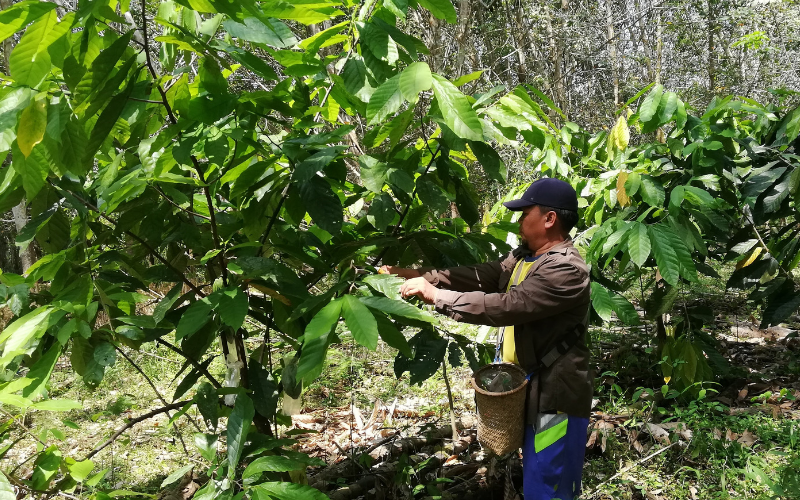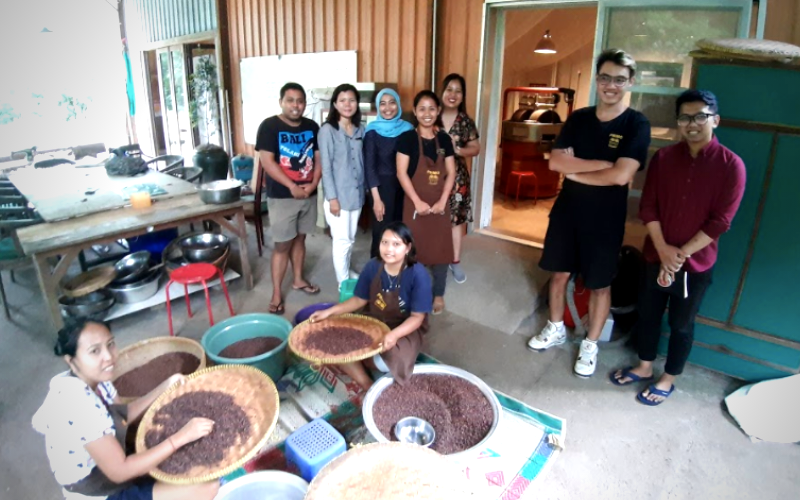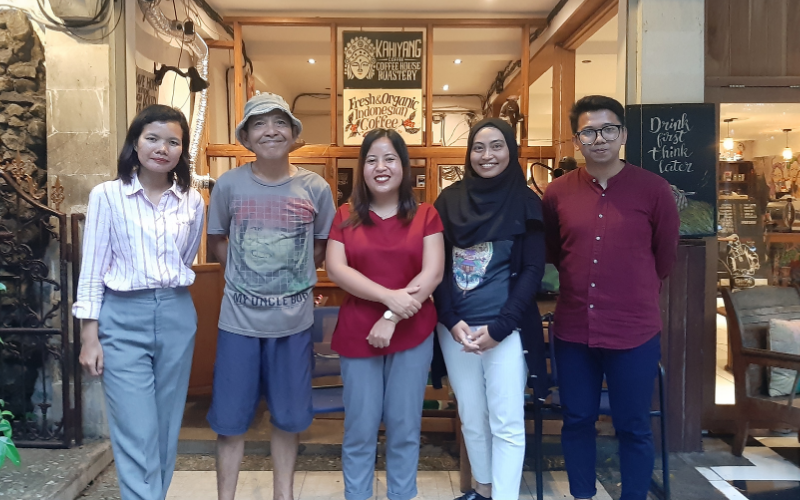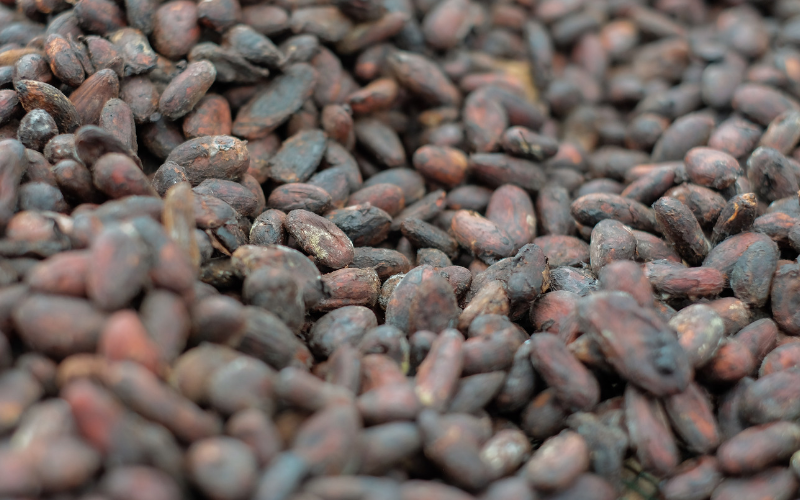Partnership development is a key component of a sustainable agriculture value chain to create a bridge between farmers and premium buyers. Such partnerships can increase the absorption rate by the market, enable the products to be distributed to buyers that value quality products and engage in fair trade practices to create a better deal for farmers.
As part of our initiative to build a business case for conservation in Sintang, Kalimantan, we have been working with the Keling Kumang Group (KKG) - a cooperative of 171,000 farmers in West Kalimantan - who have started to develop a sustainable cacao plantation to reduce farmer dependence on rubber and palm oil plantations. The farmers can also diversify their income through this new initiative.
In addition to the cacao plantation development, KKG also has a mission to centralize the cacao bean production through collection of the beans and processing them into high quality dry cacao beans. This centralized process is to ensure that the cacao beans will be processed and treated effectively to meet the premium market standards and demand. Together with Kopernik, KKG conducted fermentation and drying experiments, that resulted in high quality cacao beans that comply with the Indonesian National Standard (SNI).

One of the cacao farmers in West Kalimantan who is engaged in good agricultural practice to produce sustainable cacao.
The next step is to address the question of where these premium dry cacao beans can be sold.
With their new sustainable approach, at this point, KKG is able to produce a relatively small amount of cacao beans and therefore struggles to sell them to big buyers, who typically require very large amounts (in tonnes). On the other hand, if they try to sell the beans locally in Sintang, they are only able to access the intermediaries who will purchase their product at low prices. The intermediaries typically purchase small volumes of cacao beans from various sources and mix them all together regardless of their quality. The pricing is currently at a level that does not cover the farmers’ production costs.
To address these issues, Kopernik and KKG explored potential new partnerships in Bali. As the center of tourism with many local food processing companies and a growing trend for sustainable business, Bali provides a good prospective market opportunity for the sustainably produced cacao beans.
 Keling Kumang Group (KKG) and Kopernik visited one of the artisan chocolate producers in Tabanan, Bali.
Keling Kumang Group (KKG) and Kopernik visited one of the artisan chocolate producers in Tabanan, Bali.
In March 2020, we met with several artisan chocolate producers in Bali and were met with positive responses. The artisan chocolate producers primarily look for high quality cacao beans with rich flavor. In addition, their businesses are built on additional values, such as fair trade, sustainability, and organic farming. Some of the artisan chocolate makers are also small-sized enterprises that target premium and niche markets hence a small volume of beans is not a concern for them.
For quality beans, the artisan chocolate makers are willing to pay a fair price, which is about twice the price the farmers currently get from the intermediaries. The key factor for the artisan chocolate producers is that the cacao beans meet the premium quality standards and are sustainably produced.
The objective of these meetings was to support partnership development between KKG and the chocolate artisan producers. The new partnerships would then allow them to conduct price negotiations and future transactions directly with the producers.
 Kopernik Team and Keling Kumang Group (KKG) visiting artisan chocolate makers in Bali.
Kopernik Team and Keling Kumang Group (KKG) visiting artisan chocolate makers in Bali.
Value-added products do not necessarily attract general buyers. This initiative reminds us of the importance of connecting farmers to the right markets that are interested in value-added products and supporting sustainable production and fair trade.
Indonesia has a growing demand for sustainable products and businesses, and it is therefore timely and important to support farmers and by brokering partnerships that are beneficial for farmers and consumers, while protecting the environment.
 Cacao is one of the key agricultural commodities in Indonesia.
Cacao is one of the key agricultural commodities in Indonesia.
Building on this initiative, Kopernik will continue to test solutions to support small-holder farmers and is currently experimenting with solar drying solutions for cacao and coffee in Pupuan, Bali. Stay tuned for more findings and insights.


